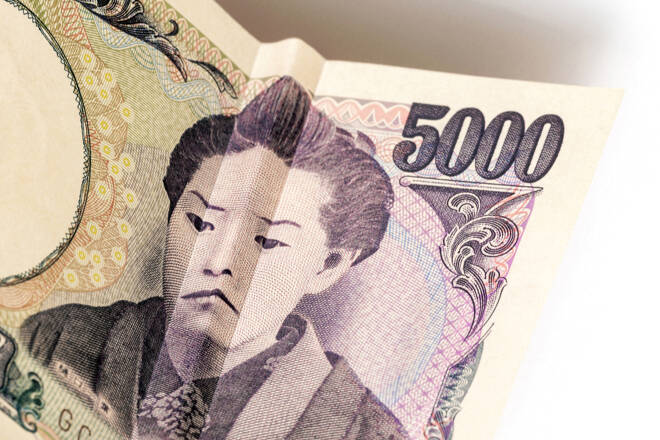Advertisement
Advertisement
USD/JPY Forecast: BOJ Maintains Ultra-low Rates, Yen Plunges Against US Dollar
By:
BOJ's policy review tempers hopes for change, as USD gains on persistent inflation with expected rate hike, leaving Fed to maintain status quo.
USD/JPY Highlights
- Bank of Japan signals dovish policy in monetary review
- BOJ removes commitment to low rates
- US Dollar rises as inflation persists, Fed to hold rates
USD/JPY Overview
On Friday, the Dollar/Yen experienced a significant increase following the Bank of Japan (BOJ) Governor Kazuo Ueda’s announcement at his inaugural policy meeting. He stated that the BOJ would maintain ultra-low interest rates, as was expected. The BOJ also unanimously agreed to keep its yield curve control (YCC) policy unchanged.
However, the central bank removed its commitment to keeping interest rates at “current or lower levels.” Instead, it stated that it would “conduct a broad-perspective review of monetary policy.” As a result, the yen also fell considerably against the U.S. dollar, dropping 1.55% to 136.11, the lowest it has been since March 10.
On Friday, the USD/JPY settled at $136.315, up $2.328 or +1.74%. The Invesco CurrencyShares Japanese Yen Trust ETF (FXY) finished at $68.35, down $1.20 or -1.73%.
While hopes for a potential policy change had been high, the review has tempered those expectations. Additionally, the likelihood that the review may take some time could further diminish any hopes for an immediate policy adjustment. As of now, the outcome of the review is seen as being dovish.
US Dollar Strengthens on Inflation
The U.S. dollar saw a broad increase in value, with support from recent data indicating persistent inflation in the United States. This reinforced expectations for a 25-basis-point rate hike at the upcoming FOMC meeting. The data released on Friday revealed that the personal consumption expenditures (PCE) price index rose by 0.1% in March, following a 0.3% increase in February. Over the 12 months leading up to March, the PCE price index rose by 4.2% after a 5.1% increase in February.
Dollar Supported as Core PCE Rises YoY
Excluding the volatile food and energy components, the PCE price index showed a marginal increase of 0.3% in March, following the same rate of increase in February. The core PCE price index, which excludes these components, showed a year-on-year increase of 4.6% in March, compared to a 4.7% rise in February. The Federal Reserve uses the PCE price indexes to track progress towards its 2% inflation target.
US Economic Growth Slows, Inflation Rises
On Thursday, newly released data indicated that U.S. economic growth had slowed more than anticipated in the first quarter. However, consumer spending had increased, resulting in a rise in inflation. Despite expectations of another rate hike from the Fed next week, the persistently high inflation rates may result in the Fed maintaining the status quo for the remainder of the year, thereby dimming hopes of a policy shift in the latter half of the year.
Technical Analysis
On Friday, the Forex pair USD/JPY surged to its peak level since March 10, surpassing its pivot point at $133.443. This has placed the currency pair in a favorable position to confront resistance (R1) at $137.245, with the pivot point now acting as a fresh support level.
| Pivot – $133.443 | R1 – $137.245 |
| S1 – $128.973 | R2 – $141.715 |
| S2 – $125.170 |
For a look at all of today’s economic events, check out our economic calendar.
About the Author
James Hyerczykauthor
James Hyerczyk is a U.S. based seasoned technical analyst and educator with over 40 years of experience in market analysis and trading, specializing in chart patterns and price movement. He is the author of two books on technical analysis and has a background in both futures and stock markets.
Advertisement
